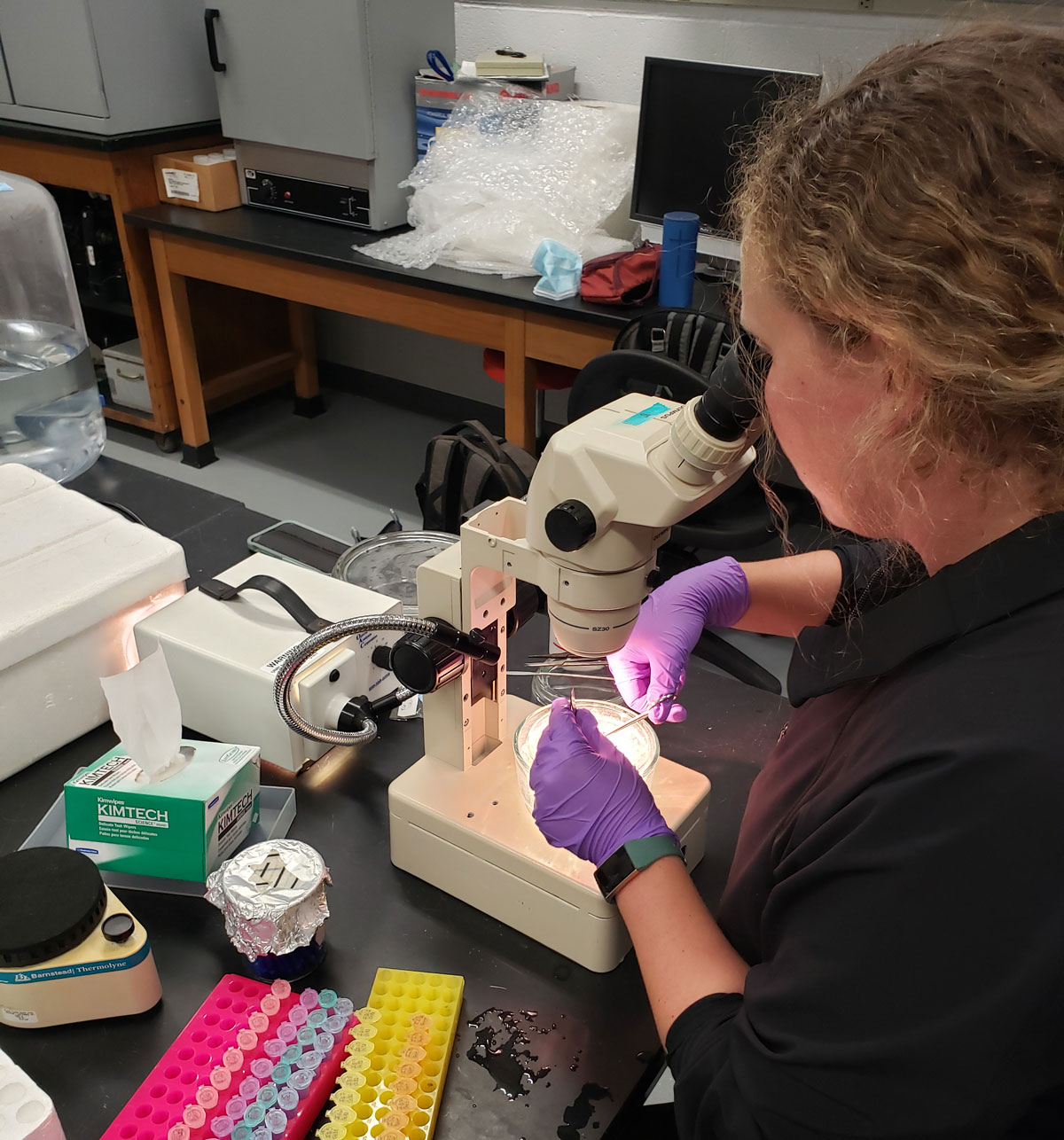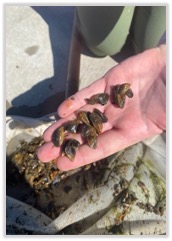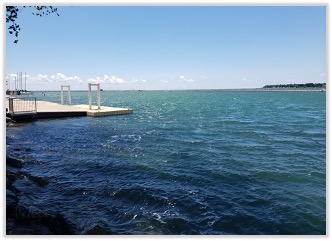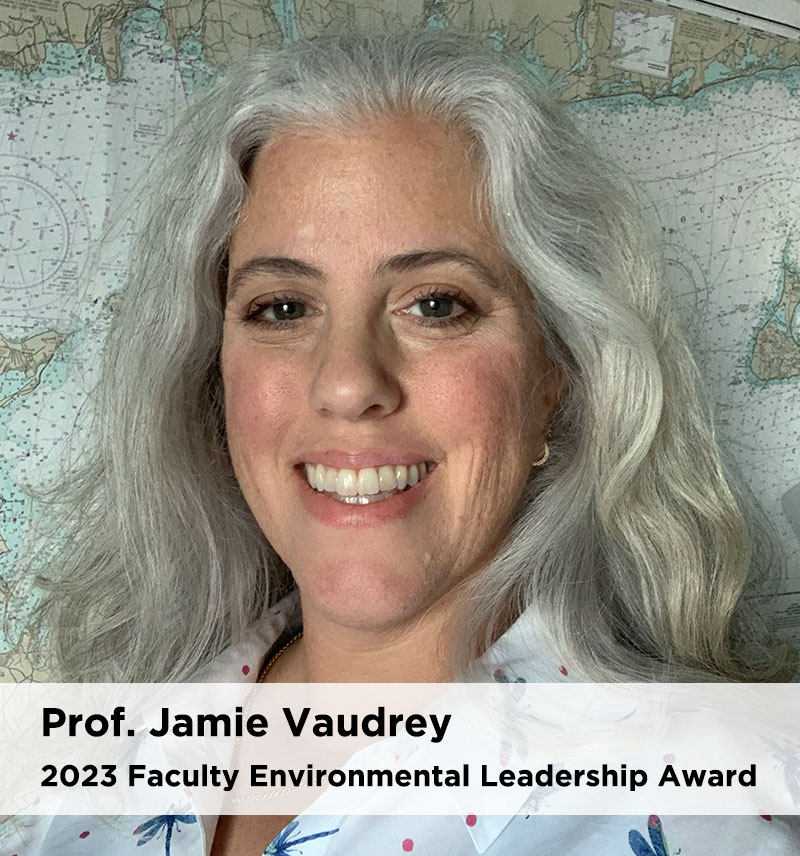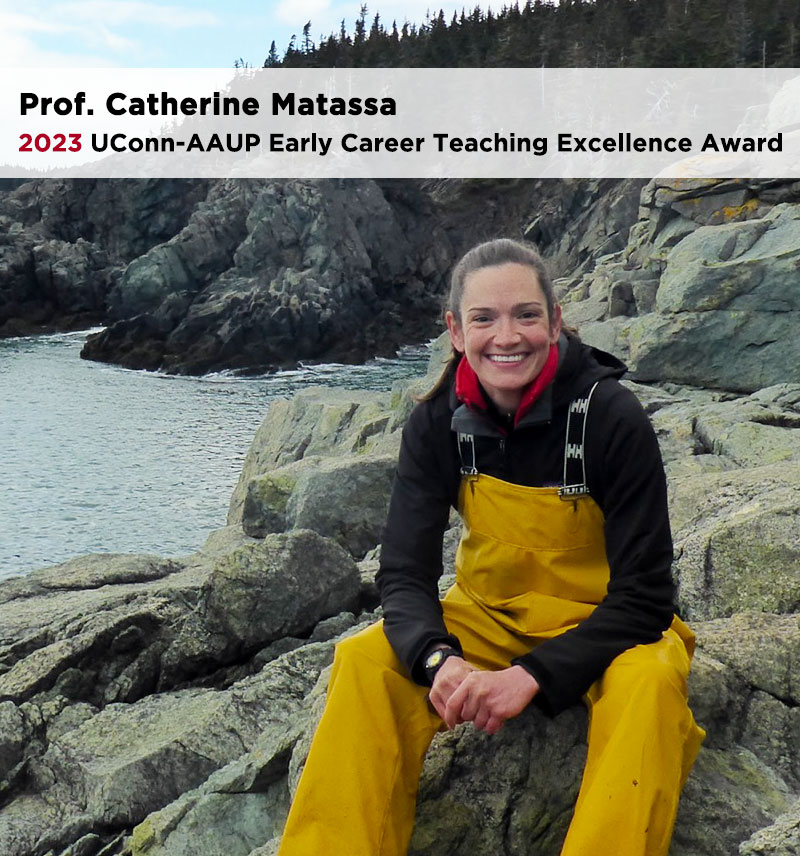March 27th 2023 - By Ewaldo Leitao.
Climate change is a threat to species persistence. Increasing temperatures affect species differently depending on their habitats, such as land or the ocean. However, species often consist of different populations (groups of individuals that reproduce together) that experience different temperature conditions. And if populations live in these areas long enough, they can genetically adapt to their local conditions. What does that mean? If the same species has a population in an area where it is constantly warm, like the tropics, and another population that lives in colder regions, like Connecticut, then we’d expect the tropical population to handle high temperatures better compared to the population living in colder regions. This kind of diversity within species affects how we think about the vulnerability of the species as a whole. To add another layer, if variation differs for terrestrial vs. oceanic species, we might be missing important information about where climate change will have the strongest effects on the planet.

That is what Dr. Matt Sasaki and collaborators investigated in a paper recently published in Nature Climate Change. Their main goal was to assess the heat tolerance (the highest survivable temperature) of populations in many different species, from different realms – terrestrial, freshwater, marine and intertidal. They assessed the vulnerability of species by surveying in the literature from the whole world that measured individual heat tolerance. They compiled and then conducted a meta-analysis of these published data, thereby assessing how the heat tolerance is related to the thermal environment these populations live in.
“This paper came out of the ‘Evolution in Changing Seas’ Research Coordination Network (RCN). Back in 2019 they brought some of us together at Shoal’s Marine Lab for a synthesis workshop and essentially told us to think about questions at the intersection of evolutionary biology and marine science”, said Matthew Sasaki, about the seed of the idea.
"I really enjoyed the collaborative aspect of this project, even though I’ve met most of the co-authors in person only once (or not at all!)"
By measuring how heat tolerance changes between populations of the same species, they found that marine and intertidal species show a decrease of heat tolerance between populations as the environment gets colder, but that was not observed in terrestrial and freshwater populations. This was an interesting result, because since the ocean is largely connected, they expected that there would be a smaller differentiation in the ocean compared to land, where geographical barriers can create physical separations, allowing difference in heat tolerance to build up among populations within a species.
Behavior may play a role in the observed patterns. In the terrestrial realm, many organisms can moderate body temperature by seeking shade and forested areas to find refuges from the heat. Even plants can exploit micro-climates. This decreases the amount of evolutionary pressure on terrestrial organisms, when compared to other realms.
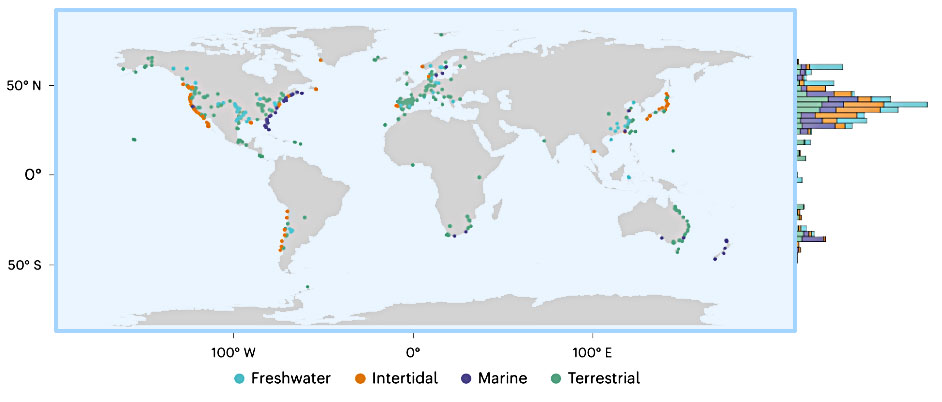
This study highlights the importance of accounting for evolutionary processes in the context of climate change and species persistence and extinction risk. Larger differentiation of heat tolerance within species may suggest a potential for evolutionary rescue. That is, populations with genes that allow them to be “warm adapted” may rescue populations that are more susceptible to increasing warming.
We asked what was the coolest part about the execution and findings of the project. “This wasn’t a project someone could do alone, and it was really cool to be part of such a big collaborative effort. The findings themselves were also really exciting for us. We expected there to be pretty clear differences between marine and terrestrial taxa, but we were surprised to see that local adaptation seems to be stronger in marine species and not terrestrial species. This goes against some of the traditional paradigms (that marine species’ are more often homogenized by larval dispersal, for example), and hints at a cool role of behavioral thermoregulation in shaping patterns in evolutionary adaptation.”
“This was definitely a pandemic pet project. I won’t say the pandemic helped us make progress though. This ended up being something we worked on a little bit each week for a couple years. Maybe that helped us put together a more robust product (slow and steady wins the race?). I really enjoyed the collaborative aspect of this project, even though I’ve met most of the co-authors in person only once (or not at all!). Having to do everything virtually definitely changed the nature of the collaboration (more written exchanges, less whiteboard brainstorming) but I think we made it work. We’ve just started working together on a couple new projects that build from this initial work, so it must not have been too terrible.”, said Matt.
- Sasaki M, Barley JM, Gignoux-Wolfsohn S, Hays CG, Kelly MW, Putnam AB, Sheth SN, Villeneuve AR, Cheng BS (2022) Greater evolutionary divergence of thermal limits within marine than terrestrial species. Nature Climate Change. 2022 Dec 1:1-6.
